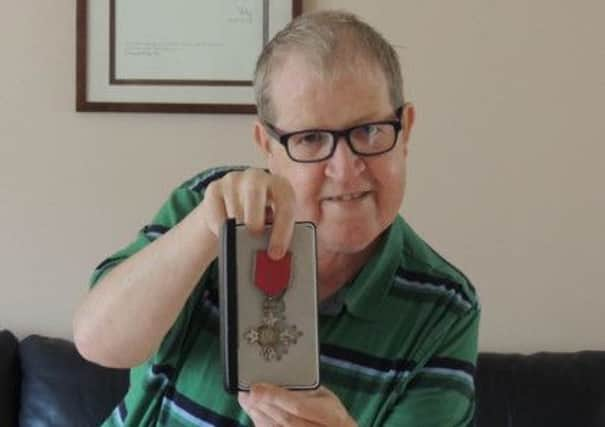Obituary: Donald Stirling MBE, learning disabilities rights campaigner


It was probably one of the most poignant statements Donald Stirling ever made and encapsulated his bewilderment at spending half his young life in a psychiatric hospital: “I didn’t know people with disabilities were allowed to love.”
He was describing the joy of finding happiness with his late wife almost immediately after being released from 15 years as an in-patient at Craig Phadrig in Inverness. He saw her as soon as he walked into his new home and was instantly smitten with the young woman with the long, shiny blonde hair.
Advertisement
Hide AdAdvertisement
Hide AdBoth had learning disabilities and despite the cynics giving them a week they were together for the best part of a decade, Donald having fought for them to live an independent lifestyle just like any other married couple, in a home of their own.
He not only discovered love and a way to lead the life he wanted, he went on to help ensure that countless others were empowered to take control of their own lives and destiny, becoming a member of ENABLE Scotland, the country’s leading charity for people with a learning disability, and holding a seat on its Scottish Council.
He also helped to set up the organisation’s ACE group national network of adults with learning disabilities, became a trustee of Inclusion in Europe, representing people with intellectual disabilities and their families across the continent, and in 2009 was awarded an MBE for his work.
It was a long and difficult path that had begun in rural Ross-shire where he grew up on a farm in Wester Moy, Strathpeffer. Young Donald had a mild learning disability and epilepsy but as he became a teenager the seizures became increasingly difficult to manage. His parents, who became concerned for his safety around the farm, took the tough decision to admit their son to hospital. He was 15 and they felt it was their only option.
It was the only option for many families then as there were few services for people in their situation and by 1970 more than 7,000 children and adults with learning disabilities were housed in 22 long-stay hospitals in Scotland.
He acknowledged he must have been “a right handful” when suffering a seizure but he had no idea he was going to a long-stay ward. In an interview with Radio Scotland, marking ENABLE’s 60th anniversary earlier this year, he recalled the sometimes violent atmosphere in the institution where fighting to protect himself resulted in him being locked in a room naked.
His parents had relinquished control of what could happen to him in Craig Phadrig but he was adamant he would not let it break him and it ultimately made him the man he became – proud, resolute and determined to have a voice.
One of the doctors, with whom he had a good relationship, concluded his detention was wholly inappropriate and after 15 years he was finally discharged, relishing the wind on his face and punching the air with delight as he left.
Advertisement
Hide AdAdvertisement
Hide AdHe moved to supported accommodation in Conon Bridge where he appreciated a newfound freedom of movement, the ability to manage his own finances and forge many new friendships.
On arrival he saw his future wife Shona for the first time. “I walked in the door and it was ‘Oh gosh, where have you been all my life?’ I didn’t know people with disabilities were allowed to love.”
He was offered a job with a local firm Haven, where he worked for 30 years, and the couple, who set up home in their own flat, were married for nine-and-a-half years until Shona died at the age of 34.
He became a member of ENABLE and as well as being a member of its Scottish Council he chaired the ACE group network for a decade. One of the first changes ACE made was to the name – stripping it of its previous title the Scottish Society for the Mentally Handicapped.
Addressing ENABLE Scotland’s 60th anniversary event last April he said: “We did not like being called mentally handicapped – labels are for jars and not for people so we asked for the name to be changed.
“That is when it became Enable which I think is far better… It is wrong to label people with learning disabilities, they need to see the person not the disability and give us the chance to live our lives and reach our potential.”
He too was 60 this year and though he was delighted so much had been achieved there was still more to do. Enable Scotland’s chief executive Peter Scott said: “He was a genuine inspiration to many of us, teaching us how to grasp life with both hands.
“Despite years of life in an institution, Donald moved on to live a life filled with love and friendship. He never stopped doing what he could to ensure other people who have learning disabilities could have this kind of life as well.”
Advertisement
Hide AdAdvertisement
Hide AdMost significantly, he had once more found love and was engaged to Karen Hunter.
All those years shut away in hospital were very much in the past though they had shaped his future beyond measure: “I have gone in one side and come out the other,” he said earlier this year. “It’s made me see life in a different way.”